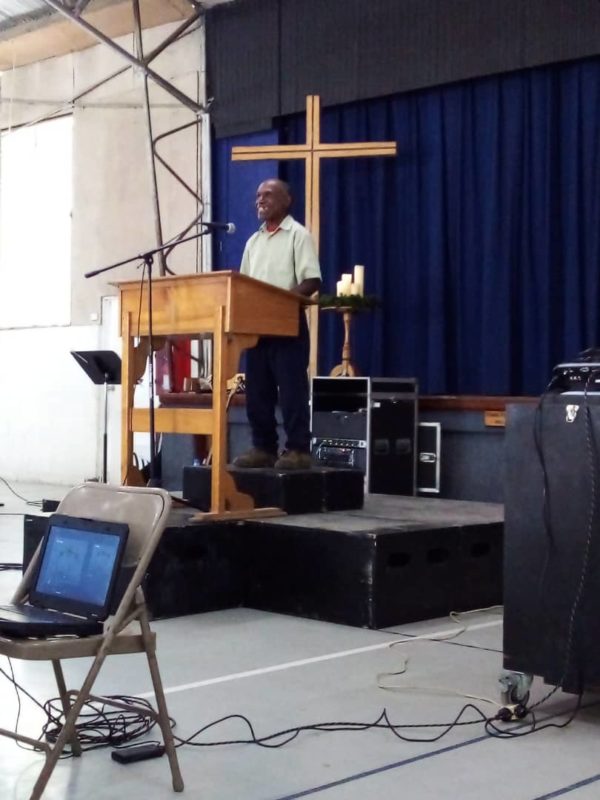
Recently a believer from a church plant delivered the Sunday message at our mission center church. Mr. Z has been long-associated with our mission, and he is a trusted and animated speaker. We don’t frequently have outside speakers since they are usually with their churches. He spoke in Tok Pisin, the trade language of the country; that was about the only option of a common language as the audience would have included about a dozen nationalities.
All tribal church planters and most support workers have been through cultural and language training. They have mastered Tok Pisin, though local friends always comment on their accents ;). Some support workers use primarily Tok Pisin in their work, and some tribal church planters use it in the tribal location.
I’ve never been through a formal course of Tok Pisin since my ministry is to missionary kids and is in English. Instead, I’ve been on the very-slow-learning plan. I initially attended weekly classes in the evenings to learn many basic nouns and a bit of grammar. It is a language very much based in English, and thus is considered fairly easy, especially for its intended use as a trade language.
I greet folks around center and in town in Pisin. I speak Tok Pisin to two of our employees at the school. Sometimes I find myself reverting to English for some words (our conversations are almost entirely about maintenance or days off, so nothing philosophical though sometimes technical) and they understand enough and then reply in Tok Pisin. I speak Tok Pisin with my wok meri, or house helper, when I get to eat lunch with her. She has been invaluable in faithfully correcting my Tok Pisin and adding to my vocabulary. We talk about our families and the weather and her garden; sometimes she tells stories too fast for me to follow though.
As I listened to Mr. Z speak, I had a hard time following. He wasn’t particularly fast, but as he got more animated, he speech did speed up. The acoustics in the gym aren’t fantastic, and I don’t know that I heard every word, but that’s true every week depending on where I am sitting. I thankfully had my English Bible and knew what passage he spoke from; I spent a lot of time trying to link what he was saying in Pisin with what I was reading in English. I knew the context because I had heard it previously, but I still found it hard to focus because I could not follow enough. At the end of the service, my brain hurt and I could not have done a proper summary. Throughout the next week, the sermon came up in conversations with my English-speaking friends. I gleaned more from them as they explained things that I had missed. For example, I knew Mr. Z had talked about a tree, but it wasn’t in the passage and I couldn’t figure out all the words in his analogy. My friends cleared it up for me as he had compared deep roots to a deep understanding of God’s Word.
This experience was a very clear reminder for me of what we do as a mission to unreached people groups. So many of these people have heard bits and pieces of the Gospel in a language that is not their own. (Just like me, the language might be one they speak infrequently and in a completely different context.) They can translate some or most of what they hear, but they often can’t put it all together for true understanding. When they are with their friends, they speak their heart language and understand so much more. But, of course, to understand the Gospel, somebody in the group has to understand it in their heart language. They need to be able to reference the written Word in the language they best understand.
And, therefore, we continue to work to understand the culture and language of unreached people groups and then communicate the Gospel to them. We want everybody to be a part of a thriving church in their heart language. (And I am even more grateful for the English-speakers at our church!)